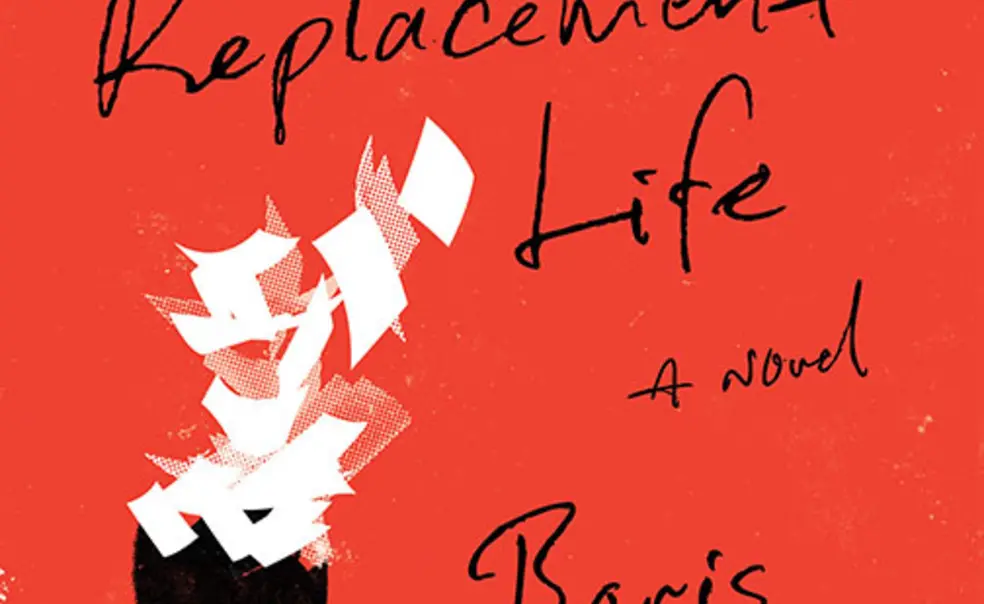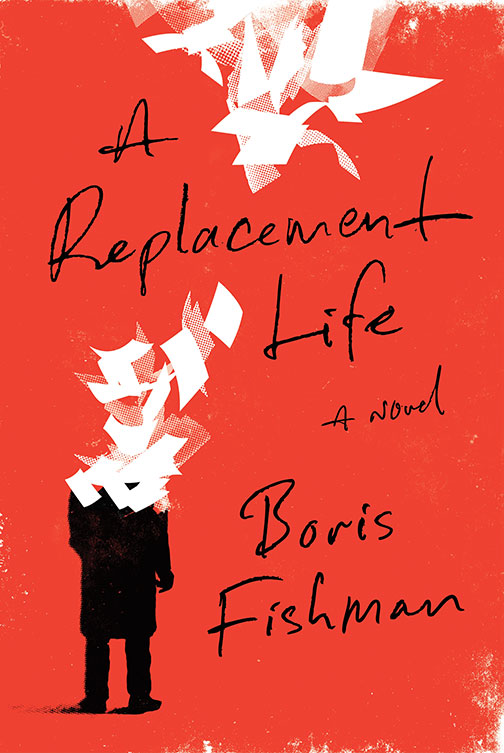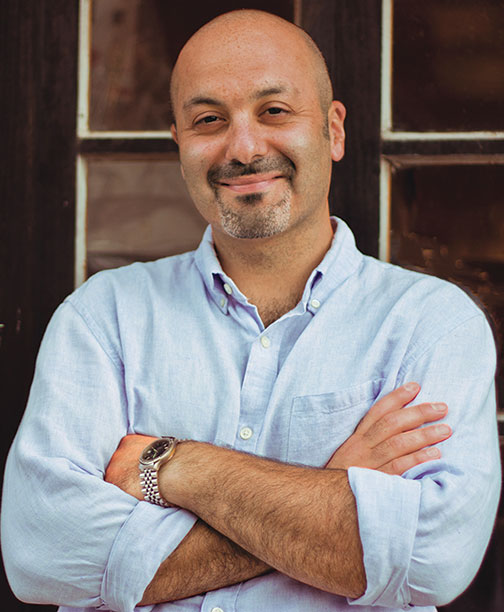Writers often draw from their childhoods for material. Boris Fishman ’01’s youth gave him plenty to work with. Born in Minsk in the former Soviet Union, Fishman came to the United States with his family in 1988, at age 9. He went from being a Jewish outsider in Russian society to being a Russian outsider in American society.
When he was 15, his relatives asked him to fill out his grandmother’s application for Holocaust restitution from Germany because his English was better than theirs. There was no documentation to support her claim. “It came down to, Could you tell a persuasive story?” he says. It occurred to him then that an unscrupulous person might game the system with a phony story, which years later sparked the idea for his debut novel, A Replacement Life (Harper), published in June.
The main character, Slava, toils at a magazine, compiling a column of journalistic bloopers but hoping for a byline. He is estranged from his immigrant family, but the death of his beloved grandmother, a Holocaust survivor of the Minsk ghetto, draws him back.
The day of her funeral, his “wheeler-dealer” grandfather produces an application for restitution from the German government and asks Slava to fabricate a narrative about him for the claim. Slava knows it’s criminal, but acquiesces. Then the grandfather spreads the word that Slava can help others. Slava must decide how far to go and which rules — Old World or New World — to follow. Fishman based the grandparents in the book on his own.
Through Slava, Fishman explores issues he struggled with as an immigrant navigating two cultures: What is the balance between familial duty and striking out on one’s own? And between black-market dealings for survival in a former homeland and the rule of law in your new one?
For a time, Fishman wanted to be called “Bobby” because it sounded to him like a Midwest football player’s name. As an adolescent, family expectations to become a doctor or lawyer competed with the “follow your dreams” credo of his adopted country.
“My first 10 years, I tried so hard to assimilate,” Fishman says. “I spent my 20s negotiating the distance between my elders’ aspirations for me and what I wanted to do.”
He wanted to write. His first steps came at Princeton, where he took courses in Russian literature, creative writing, and poetry. Since then, Fishman’s journalism, essays, and criticism have been published in The New Yorker, Tablet, and the London Review of Books, among other publications.
A Replacement Life is “vindication,” Fishman says, for his American dream. He acknowledges that he’ll probably always feel caught between his Russian and American selves. “Outwardly I’m very American, but inwardly I’m Russian,” he says. “The conflict is very rich for writing. Honey for art, but vinegar for life.”
What he’s reading: King Leopold’s Ghost: A Story of Greed, Terror, and Heroism in Colonial Africa by Adam Hochschild. “I picked it up because I can’t get Africa off my mind after just having spent a month there.”














No responses yet